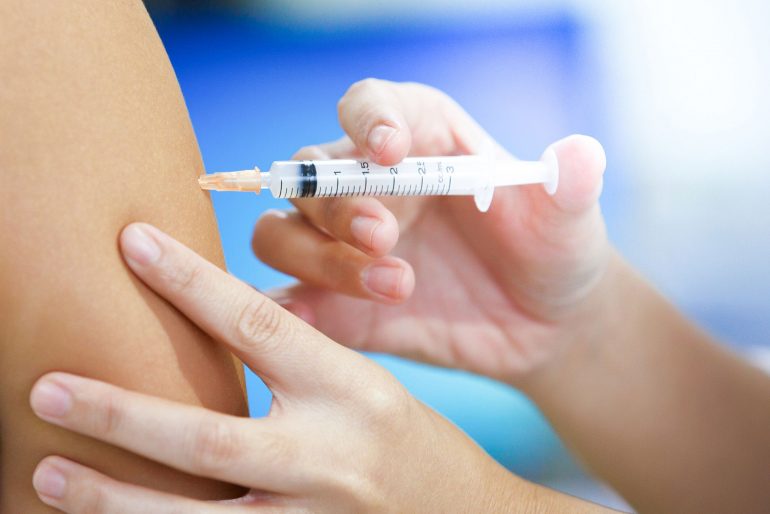Discontinuation of vaccination services during the pandemic COVID-19 The World Health Organization (WHO) warns of the recurrence of diseases that can be prevented with safe and effective vaccines on the occasion of World Vaccination Week between April 24 and 30.
In a press release posted on its website, the WHO warns that when vaccination services are discontinued, even for short periods during emergencies, the risk of spreading diseases such as measles and polio increases.
The deadly outbreak of measles last year in the Republic of Congo, which caused 6.000 deaths in a country already facing the largest outbreak of Ebola, underscores the importance of maintaining essential health services, such as vaccination, during emergencies. The spread of other diseases will cause congestion in health systems that are already battling the effects of COVID-19, refers.
"The incidence of disease should not continue to be a threat when we have safe and effective vaccines to protect us," he said. Tantros Antanom Gebregieses, Director General of the WHO.
"While people are struggling to develop a new vaccine for him COVID-19 "At record speeds, we must not risk losing the battle to protect everyone, anywhere against diseases that can be prevented by vaccines."
These diseases, he added, "will reappear more severely if we do not vaccinate."
"The WHO is working with partners around the world to accelerate the research and development of a safe and effective vaccine and to ensure equal access to it for the billions of people who need it."
However, it is noted, "even with the accelerated process, the development of the vaccine for COVID-19 it will take time ".
It is necessary to take precautionary measures now to help us stay safe from diseases, including diseases from which vaccines already protect children and adults, he added.
According to the WHO, the number of people still excluded from the benefits of vaccines is excessive.
Before his pandemic COVID-19, the world had made tremendous progress in ensuring that children were vaccinated, reports and data show that in 2018, 86% of children under the age of five worldwide were vaccinated with three doses of diphtheria, tetanus and pertussis and a dose of measles vaccine, compared with 72% in 2000 and 20% in 1980.
The number of children paralyzed by polio worldwide has dropped by 99,9%.
But, he added, global vaccination coverage is still far from the 95% needed to fully protect communities against the outbreak of this vaccine-preventable disease.
In 2018, almost 20 million children worldwide, more than one in ten, were not vaccinated against such diseases. Around 13 million children have never been vaccinated, putting themselves and their communities at risk of getting sick and losing their lives.
The majority of these children, it is reported, "live in countries that already have vulnerable health systems, which limits their access to essential health services when they become ill."
Measles continues to be a threat, especially as the rate of vaccination is declining.
Forecasts currently indicate that the number of measles cases reported in 2019 will be at least 800.000, it added.
"In 2020, there are growing concerns about another wave (of the disease), especially if vaccination rates fall due to delays or suspension of scheduled vaccination activities as a result of COVID-19", Continues the WHO Press Release.
The recurrence of polio, diphtheria and yellow fever is also a matter of great concern, especially in countries that are unable to respond to the spread of a disease that has been reported in previous emergencies such as the outbreak of polio in 2013. , refers.
As the management of his pandemic continues COVID-19"Countries must now act to protect vaccination services so as to minimize the incidence of disease and loss of life."
This, it is noted, includes facilitating programs that will make up for lost time in areas where services have been disrupted, ensuring strong supply chains, disease monitoring and trained health personnel. Child caregivers must ensure that they continue to vaccinate their children in accordance with national policies.
New WHO vaccination and vaccination guidelines COVID-19 recommend that governments temporarily suspend preventive vaccination campaigns where there is no active outbreak of preventable diseases.
He called on countries, however, to "prioritize the continuation of routine vaccinations of children in the context of providing the necessary health services, as well as the flu vaccine to the groups that are most vulnerable."
Source: KYPE
